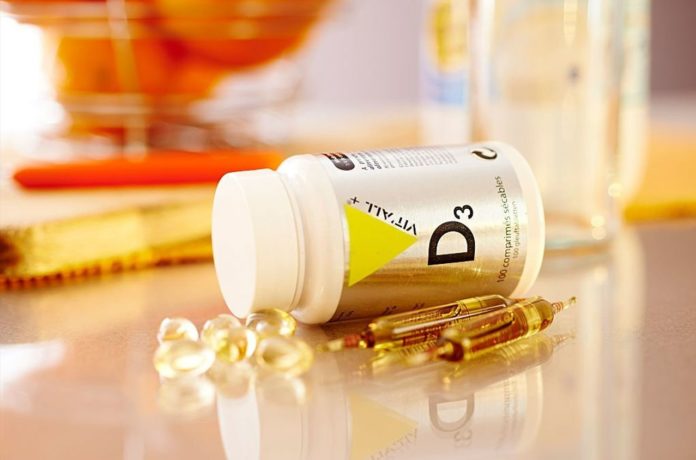Does vitamin D protect you against Diabetes? This is what an NIH-funded trial says.
In adults with a high risk of developing type 2 diabetes, taking a daily vitamin D supplement did not help prevent the disease, according to research supported by the National Institutes of Health’s National Institute of Diabetes and Digestive and Kidney Diseases (NIDDK).
The Vitamin D and Type 2 Diabetes (D2d) study involved a total of 2,423 adult participants and was carried out at 22 different locations across the United States.
These findings were presented at the American Diabetes Association’s 79th Scientific Sessions in San Francisco and published in the New England Journal of Medicine.
It’s the largest trial to evaluate whether regular vitamin D supplementation helps prevent type 2 diabetes in those at high risk. The trial comprised people aged 30 and up, and participants were randomly allocated to take either 4,000 International Units (IU) of vitamin D3 (cholecalciferol) or a placebo pill daily. At the start of the trial, all participants had their vitamin D levels checked. Around 80% of the individuals had vitamin D levels that were considered adequate by US nutritional standards at the time.
According to Myrlene Staten, M.D., D2d project scientist at NIDDK, “Observational studies have reported an association between low levels of vitamin D and increased risk for type 2 diabetes.
“Additionally, smaller studies found that vitamin D could improve the function of beta cells, which produce insulin. However, whether vitamin D supplementation may help prevent or delay type 2 diabetes was not known.”
For an average of 2.5 years, participants in the study were checked every three to six months to see if they had developed diabetes. The number of patients in each of the two study groups who had progressed to type 2 diabetes was then compared. At the conclusion of the trial, 293 out of 1211 participants (24.2%) in the vitamin D group got diabetes, compared to 323 out of 1212 (26.7%) in the placebo group — a difference that was not statistically significant. The study’s goal was to find a 25% or greater reduction in risk.
D2d recruited a varied group of people with a variety of physical features, such as sex, age, and BMI, as well as racial and ethnic diversity. This helps to ensure that the findings of the study could be broadly applicable to persons who have a high risk of developing type 2 diabetes.
“In addition to the study’s size, one of its major strengths is the diversity of its participants, which enabled us to examine the effect of vitamin D across a large variety of people,” added lead author Anastassios G. Pittas. “When the study ended, we found no meaningful difference between the two groups regardless of age, sex, race or ethnicity.”
In the United States, more than half of Americans use dietary supplements, and vitamin D consumption has risen dramatically in the previous 20 years. Because of these trends, the study also looked at how safe it is to take 4,000 units of vitamin D every day. This is more than the average daily recommended dose of 600-800 IUs, but it is still within the limits that the Institute of Medicine says are safe for clinical research. When the researchers analyzed the vitamin D and placebo groups, they found no difference in the quantity and frequency of expected adverse effects such as increased blood calcium levels and kidney stones.
“As we learned from the NIDDK-funded Diabetes Prevention Program (DPP), type 2 diabetes is not a foregone conclusion, even for those at high risk for the disease,” concluded NIDDK Director Griffin P. Rodgers, M.D. “While we continue to search for new ways to prevent the disease, we know that lifestyle change or the drug metformin remain effective methods to prevent type 2 diabetes. We encourage the 84 million U.S. adults at high risk for developing type 2 diabetes to explore options like the CDC’s National DPP, available to communities throughout the country.”
Image Credit: Getty
You were reading: One Popular Myth About Vitamin D You Need To Stop Believing
